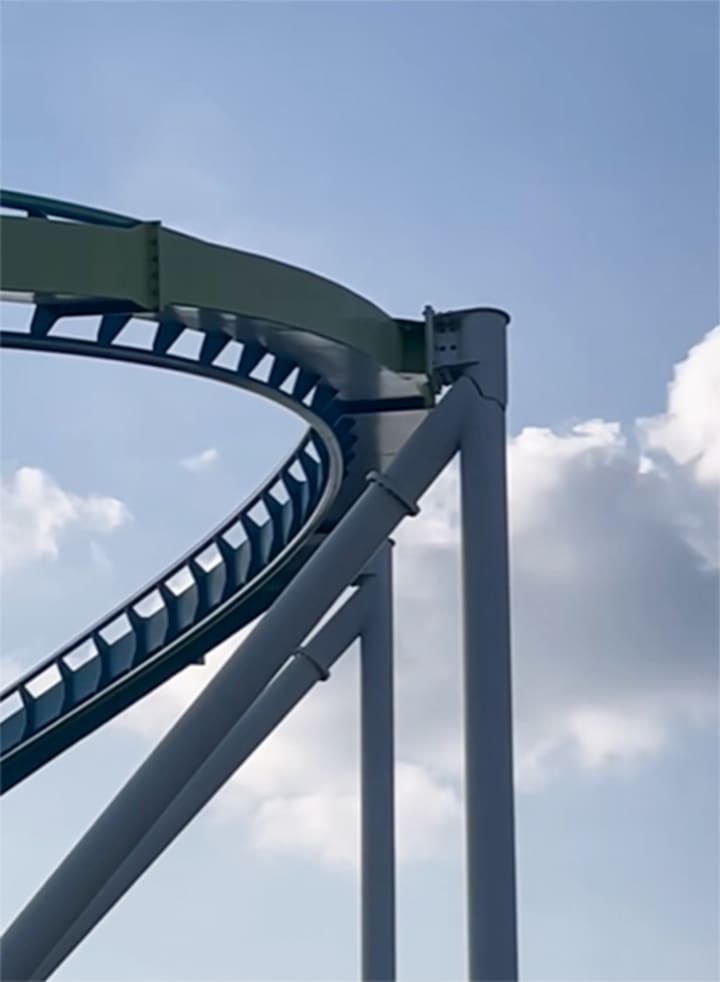this post was submitted on 07 Jul 2023
16 points (94.4% liked)
Engineering
754 readers
7 users here now
A place to geek out about engineering, fabrication, and design. All disciplines are welcome. Ask questions, share knowledge, show off projects you're proud of, and share interesting things you find.
Rules:
- Be kind.
- Generally stay on topic.
- No homework questions.
- No asking for advice on potentially dangerous jobs. Hire a professional. We don't want to be responsible when your deck collapses.
The community icon is ISO 7000-1641.
The current community banner image is from Lee Attwood on Unsplash.
founded 2 years ago
MODERATORS
you are viewing a single comment's thread
view the rest of the comments
view the rest of the comments

That looks like a fatigue crack, which makes sense for a roller coaster.
The ride should be closed.
Interesting to see a fatigue crack on a coaster this new.
Yeah, but the ride has been open for years and the left end of the crack seems to be coming from the weld between the vertical and diagonal hollow structural shape in an area that would receive cyclic tension loads.
It could either be a bad weld or bad detailing.
A wise senior engineer once told me, "There's never only one problem. There are at least two and they work together against you."
My armchair quarterback take is that there was a stress concentration at the weld, and also that inside corner wasn't well painted so corrosion was a factor in initiating the crack.
I don't see corrosion as a likely issue; there is no staining of the paint in the location of the crack and the crack likely propagated from an area protected from water by the joint to the track.
A stress concentration at the weld would be due to poor craftsmanship, which I mentioned earlier.
Good point about the lack of paint staining.
The Wikipedia article for the coaster says the crack started along the weld line, so my current hypothesis is a faulty weld.
I know I'm just an out-of-work aircraft repairman so the next thing I'm going to say is probably insane, but if it were my roller coaster I wouldn't re-open it to guests until I'd replaced that support column and done some NDT on that section of track as well as all the other support columns. I'd likely have nightmares for years about some weld somewhere failing. See why I don't work on planes anymore?
Not insane at all. I hope an NDT contractor is going to get some business out of this incident.
You aren't wrong, but they are also going to need to verify the fatigue design of that detail. That connection detail is rather rigid, so the model they used for the design of that weld may not have accurately modeled the stress at that weld.
This is the kind of issue someone can get a PhD trying to solve.